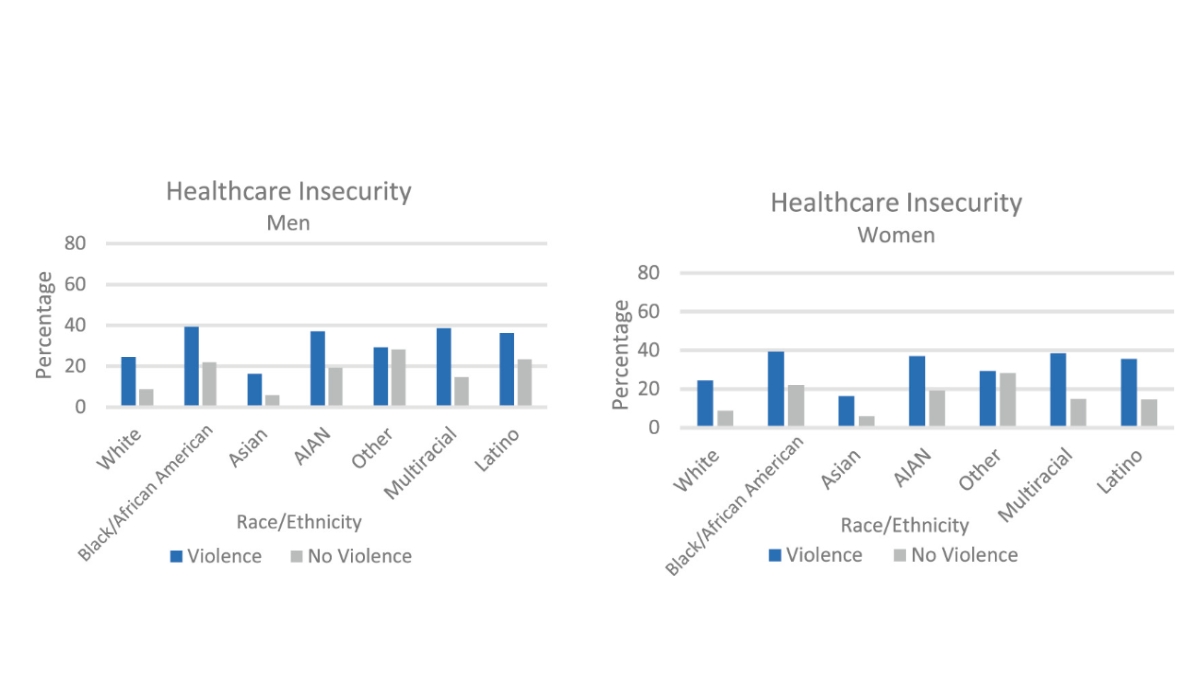Physical violence, stalking, and rape can take a toll on a survivor’s mental and physical health. It is estimated that 35.6% of women and 28.5% of men in the U.S. experience such intimate partner violence, yet the long-term financial costs of these assaults are often overlooked.
Survivors experience high out-of-pocket costs for care in the years following these traumas. For example, survivors of rape have an additional burden of $122,461 because of needed medical care and criminal justice system costs. In addition, those experiencing intimate partner violence are less likely to have health insurance or access to a personal health care provider, increasing costs and further increasing their risk for health care insecurity.
Researcher Lisa Fedina and colleagues analyzed data from the 2010 U.S. National Intimate Partner and Sexual Violence Survey to document the effects of intimate partner violence and sexual violence exposure on several dimensions of economic security, including health care insecurity across racial and ethnic groups of men and women. They found that people who experienced intimate partner violence and sexual violence had higher odds of health care insecurity than those who did not experience this kind of violence. In particular, African American/Black survivors face the highest health care insecurity.
During the COVID-19 pandemic, some states implemented temporary actions to expand affordability and access to health care, adding telehealth options and easing Medicaid requirements. Yet, more permanent survivor-centered approaches in policy interventions have been considered. The Violence Against Women Act authorizes new programs, such as the HOME Investment Partnerships Program (HOME), which provides grants to create affordable housing for low-income households and promotes housing protections and other supports for all survivors participating in federal housing programs.
Databyte via Lisa Fedina, Louise Ashwell, Andre B. Rosay et al. Racial and Gender Inequalities in Food, Housing, and Healthcare Insecurity Associated with Intimate Partner and Sexual Violence. Journal of Interpersonal Violence, 2022.














